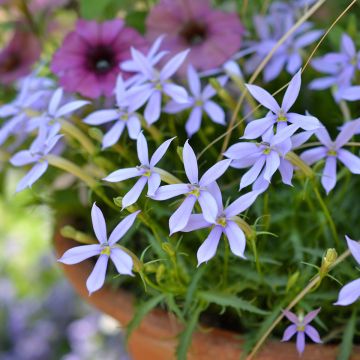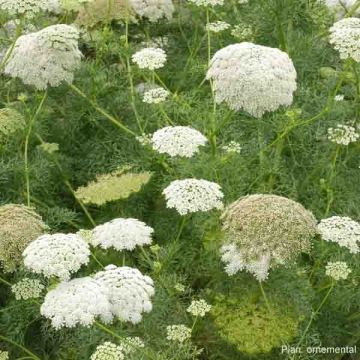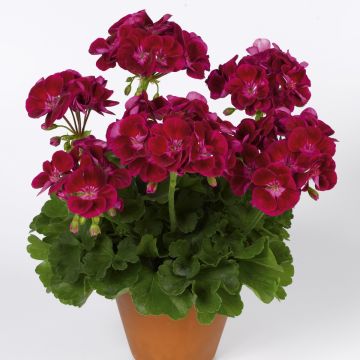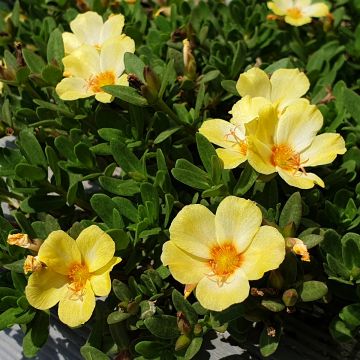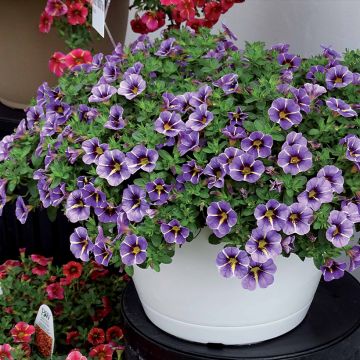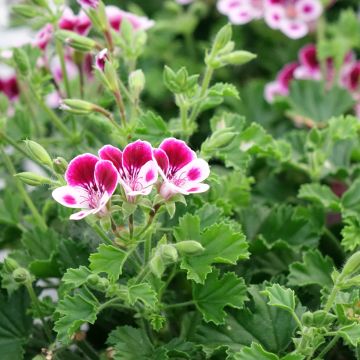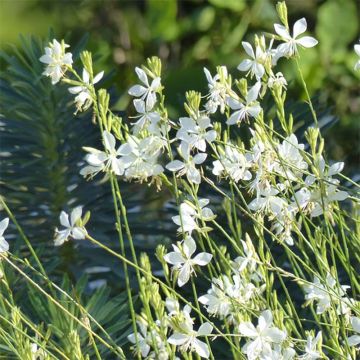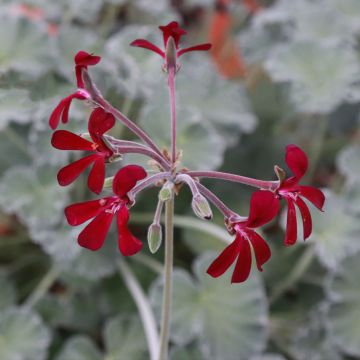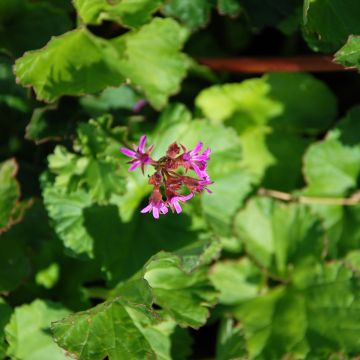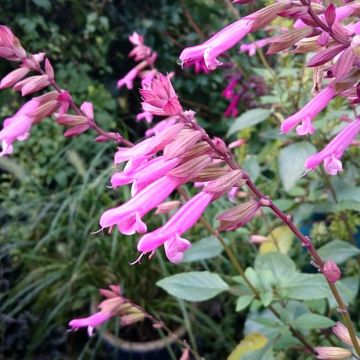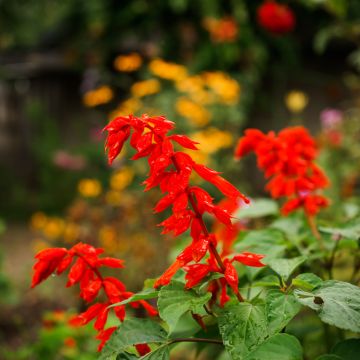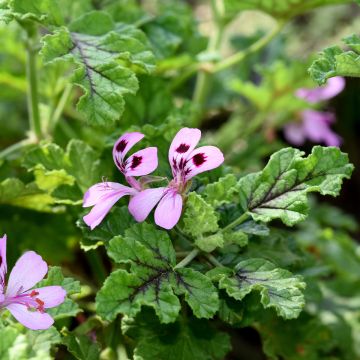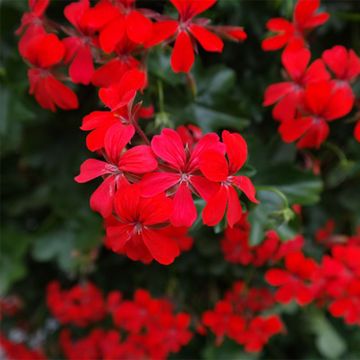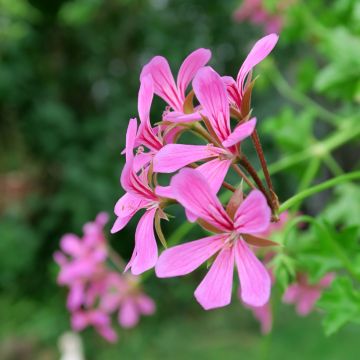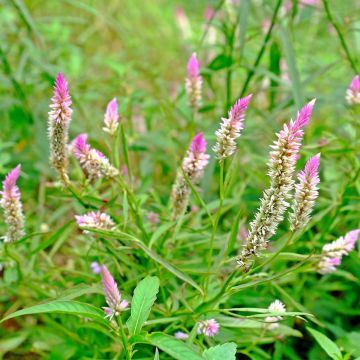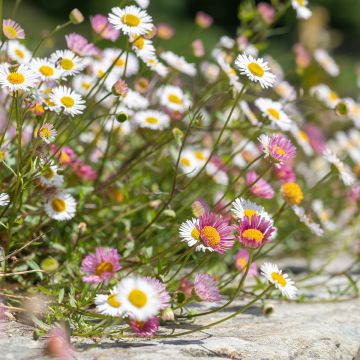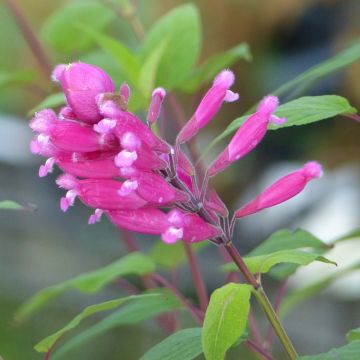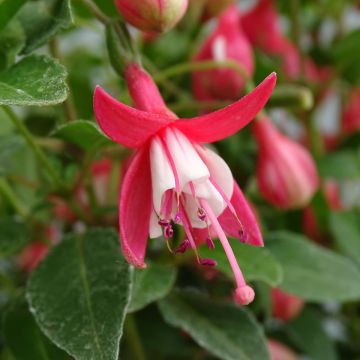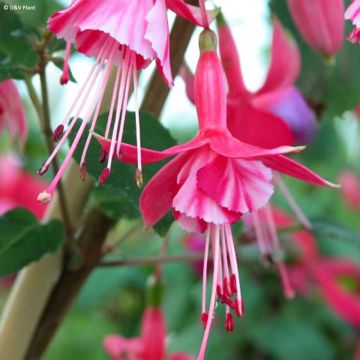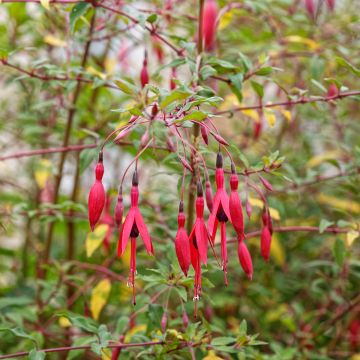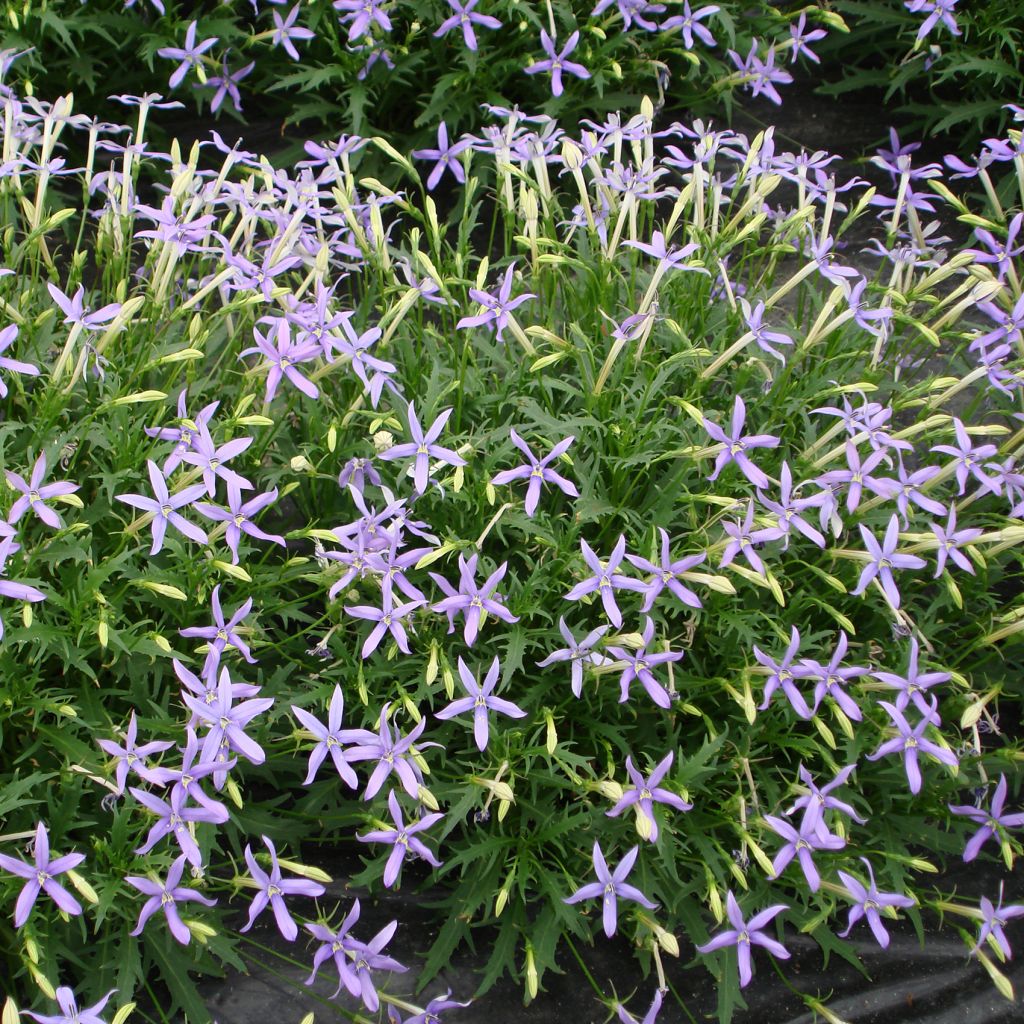

Isotoma Tristar Deep Blue – Laurentia
Isotoma axillaris Tristar Deep Blue - Rock Isotome
Isotoma axillaris Tristar Deep Blue
Rock Isotome, Showy Isotoma, Australian Swamp Star
Very nice discovery, subtle and pleasant fragrances. I'm eagerly waiting to see its development.
Amandine, 31/05/2022
Special offer!
Receive a €20 voucher for any order over €90 (excluding delivery costs, credit notes, and plastic-free options)!
1- Add your favorite plants to your cart.
2- Once you have reached €90, confirm your order (you can even choose the delivery date!).
3- As soon as your order is shipped, you will receive an email containing your voucher code, valid for 3 months (90 days).
Your voucher is unique and can only be used once, for any order with a minimum value of €20, excluding delivery costs.
Can be combined with other current offers, non-divisible and non-refundable.
Why not try an alternative variety in stock?
View all →This plant carries a 6 months recovery warranty
More information
We guarantee the quality of our plants for a full growing cycle, and will replace at our expense any plant that fails to recover under normal climatic and planting conditions.

Would this plant suit my garden?
Set up your Plantfit profile →
Description
Laurentia 'Tristar Deep Blue', a variety of Isotoma axillaris, is a very recent creation. The flowering is particularly colourful. This small perennial plant, often grown as an annual in our climates, forms a round and dense clump of finely cut foliage, with well-branched stems covered in countless small star-shaped flowers of a deep blue-mauve, fragrant, from summer to autumn. This vigorous and heat-resistant variety is perfect for quickly filling hanging baskets, planters, and borders.
Originally from Australia, Solenopsis axillaris is a herbaceous perennial plant with a woody base, often grown as an annual due to its lack of hardiness, as well as its long and abundant flowering. It quickly forms a compact and nicely rounded, branched clump, measuring 25 to 30cm (10 to 12in) in all directions. Its narrow, tapered, finely cut and toothed evergreen leaves are dark green. Between May and October, and even until the first frost, its countless small 5-lobed star-shaped flowers of intense lavender-blue follow one another. They are pleasantly fragrant. This plant withstands heat and drought well, but will be more floriferous in fertile and moist soil.
Isotoma 'Tristar Deep Blue' is an easy-to-grow and very floriferous plant, although it is little known to amateur gardeners. Decorative with its beautiful blue flowering, it is used in flower beds, planted en masse in borders, and of course in pots, hanging baskets, and planters, and harmonizes well with a wide variety of other annual or perennial plants such as begonias, petunias, Bacopas, Nemesias, pink Gypsophila, or geraniums, for example.
Note: Please note that our young plug plants are professional products reserved for experienced gardeners: upon receipt, transplant and store them in sheltered areas (veranda, greenhouse, cold frame...) at a temperature above 14°C (57.2°F) for a few weeks before being installed outdoors once the risk of frost has been definitively eliminated.
Report an error about the product description
Isotoma axillaris Tristar Deep Blue - Rock Isotome in pictures
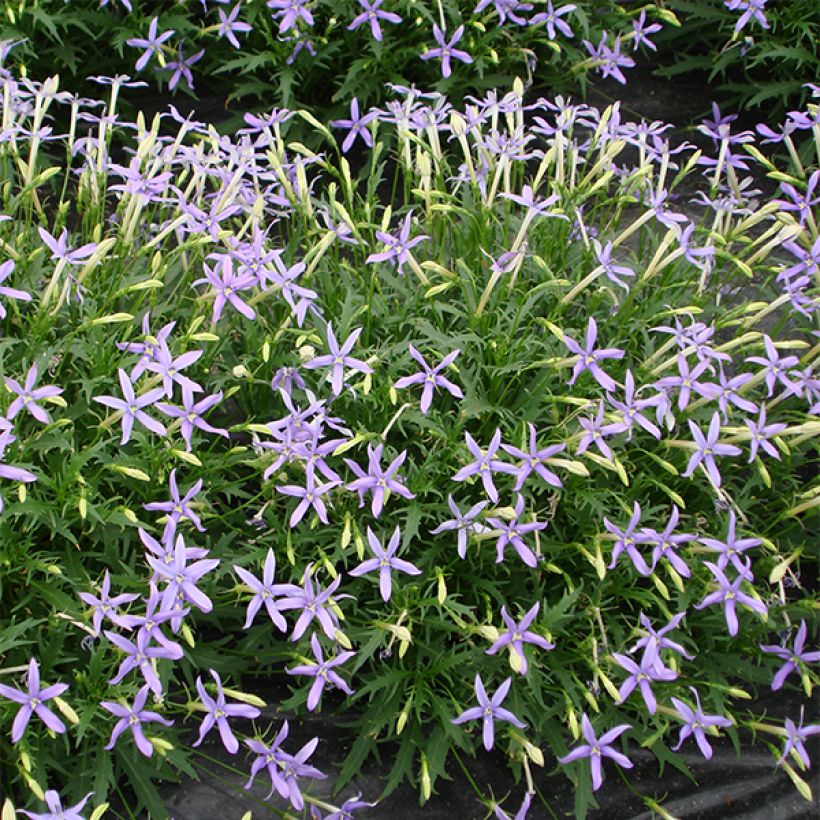

Flowering
Foliage
Plant habit
Botanical data
Isotoma
axillaris
Tristar Deep Blue
Campanulaceae
Rock Isotome, Showy Isotoma, Australian Swamp Star
Cultivar or hybrid
Other Annuals A to Z
View all →Planting and care
Laurentia requires very little maintenance and thrives in a sunny location. Plant it in the garden after the last frosts. Make sure the plant does not lack water and remove faded flowers from time to time. In mild climates, it is a perennial, but it is recommended to overwinter the plant if you want to keep it from one year to the next. Repot it and keep it in a conservatory or cold greenhouse during winter. Attention: the sap of this plant can be irritating to certain individuals.
Planting period
Intended location
Care
-
, onOrder confirmed
Reply from on Promesse de fleurs
Similar products
Haven't found what you were looking for?
Hardiness is the lowest winter temperature a plant can endure without suffering serious damage or even dying. However, hardiness is affected by location (a sheltered area, such as a patio), protection (winter cover) and soil type (hardiness is improved by well-drained soil).

Photo Sharing Terms & Conditions
In order to encourage gardeners to interact and share their experiences, Promesse de fleurs offers various media enabling content to be uploaded onto its Site - in particular via the ‘Photo sharing’ module.
The User agrees to refrain from:
- Posting any content that is illegal, prejudicial, insulting, racist, inciteful to hatred, revisionist, contrary to public decency, that infringes on privacy or on the privacy rights of third parties, in particular the publicity rights of persons and goods, intellectual property rights, or the right to privacy.
- Submitting content on behalf of a third party;
- Impersonate the identity of a third party and/or publish any personal information about a third party;
In general, the User undertakes to refrain from any unethical behaviour.
All Content (in particular text, comments, files, images, photos, videos, creative works, etc.), which may be subject to property or intellectual property rights, image or other private rights, shall remain the property of the User, subject to the limited rights granted by the terms of the licence granted by Promesse de fleurs as stated below. Users are at liberty to publish or not to publish such Content on the Site, notably via the ‘Photo Sharing’ facility, and accept that this Content shall be made public and freely accessible, notably on the Internet.
Users further acknowledge, undertake to have ,and guarantee that they hold all necessary rights and permissions to publish such material on the Site, in particular with regard to the legislation in force pertaining to any privacy, property, intellectual property, image, or contractual rights, or rights of any other nature. By publishing such Content on the Site, Users acknowledge accepting full liability as publishers of the Content within the meaning of the law, and grant Promesse de fleurs, free of charge, an inclusive, worldwide licence for the said Content for the entire duration of its publication, including all reproduction, representation, up/downloading, displaying, performing, transmission, and storage rights.
Users also grant permission for their name to be linked to the Content and accept that this link may not always be made available.
By engaging in posting material, Users consent to their Content becoming automatically accessible on the Internet, in particular on other sites and/or blogs and/or web pages of the Promesse de fleurs site, including in particular social pages and the Promesse de fleurs catalogue.
Users may secure the removal of entrusted content free of charge by issuing a simple request via our contact form.
The flowering period indicated on our website applies to countries and regions located in USDA zone 8 (France, the United Kingdom, Ireland, the Netherlands, etc.)
It will vary according to where you live:
- In zones 9 to 10 (Italy, Spain, Greece, etc.), flowering will occur about 2 to 4 weeks earlier.
- In zones 6 to 7 (Germany, Poland, Slovenia, and lower mountainous regions), flowering will be delayed by 2 to 3 weeks.
- In zone 5 (Central Europe, Scandinavia), blooming will be delayed by 3 to 5 weeks.
In temperate climates, pruning of spring-flowering shrubs (forsythia, spireas, etc.) should be done just after flowering.
Pruning of summer-flowering shrubs (Indian Lilac, Perovskia, etc.) can be done in winter or spring.
In cold regions as well as with frost-sensitive plants, avoid pruning too early when severe frosts may still occur.
The planting period indicated on our website applies to countries and regions located in USDA zone 8 (France, United Kingdom, Ireland, Netherlands).
It will vary according to where you live:
- In Mediterranean zones (Marseille, Madrid, Milan, etc.), autumn and winter are the best planting periods.
- In continental zones (Strasbourg, Munich, Vienna, etc.), delay planting by 2 to 3 weeks in spring and bring it forward by 2 to 4 weeks in autumn.
- In mountainous regions (the Alps, Pyrenees, Carpathians, etc.), it is best to plant in late spring (May-June) or late summer (August-September).
The harvesting period indicated on our website applies to countries and regions in USDA zone 8 (France, England, Ireland, the Netherlands).
In colder areas (Scandinavia, Poland, Austria...) fruit and vegetable harvests are likely to be delayed by 3-4 weeks.
In warmer areas (Italy, Spain, Greece, etc.), harvesting will probably take place earlier, depending on weather conditions.
The sowing periods indicated on our website apply to countries and regions within USDA Zone 8 (France, UK, Ireland, Netherlands).
In colder areas (Scandinavia, Poland, Austria...), delay any outdoor sowing by 3-4 weeks, or sow under glass.
In warmer climes (Italy, Spain, Greece, etc.), bring outdoor sowing forward by a few weeks.
































